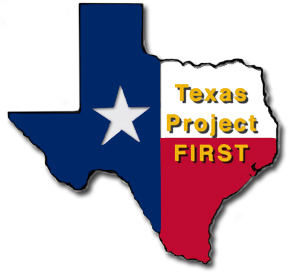en Español • Print • Share
A B C D E F G H I J K L M N O P Q R S T U V W X Y Z
Deaf-Blindness (DB) (Sordoceguera) – A combination of hearing and visual losses. Under IDEA, Deaf Blindness means concomitant hearing and visual impairments, the combination of which causes such severe communication and other developmental and educational needs that the student cannot be accommodated in special education programs solely for children with deafness or children with blindness. A determination of deaf-blindness must comply with criteria set forth in federal and state law as described in the Deaf-Blindness framework of the Legal Framework for the Child-Centered Process. Click here for more information on the Texas Deaf-Blind Project.
Developmental Delay (Retraso en el desarrollo) – Under IDEA, states may use this disability category to provide special education and related services to students aged three through nine. The definition of “developmental delay” is determined by the state and may include a child whose development, as measured by appropriate diagnostic tests and procedures, lags behind peers in one or more of the following areas: physical development, cognitive development, communication development, social or emotional development, or adaptive development, and who, because of such delays, needs special education and related services. This eligibility category is in addition to the 13 other disability categories listed under IDEA. In Texas, this is called Non-Categorical Early Childhood (NCEC) and can be used for students age 3-5.
Disability Categories (Categorías de discapacidad) – Students ages three through 21 are considered eligible to receive special education and related services if they are evaluated and found to have a “disability” that aligns with one of 13 disability categories as defined by the IDEA. These “disability categories” are: autism, deaf-blindness, deafness, emotional disturbance, hearing impairment, mental retardation, multiple disabilities, orthopedic impairment, other health impairment, specific learning disability, speech or language impairment, traumatic brain injury, and visual impairment. See also Diagnosis vs. Disability Label.
Disciplinary Alternative Education Program (DAEP) (Programa disciplinario de educación alternativa) – Established under the Safe Schools Act to serve students who have committed disciplinary offenses. A DAEP provides for the educational and behavioral needs of students in a setting other than a student’s regular classroom, either on- or off-campus.
Disproportionality (Desproporción) – The over-representation of students from racial and ethnic backgrounds who are misidentified and wrongly placed in special education. Under IDEA, States are required to collect and analyze data to “determine if significant disproportionality based on race is occurring in the state or schools” and to take corrective actions if it is determined that disproportionality exists.
Due Process Complaint (Queja de debido proceso) – A written complaint filed by a parent or a school district involving any matter relating to the identification, evaluation, educational placement or provision of a free and appropriate public education (FAPE) to a student with a disability. Due process complaints must be filed within one year of the matter in dispute. For more information, please see the Dispute Resolution Systems Handbook.
Due Process Hearing (Audiencia de debido proceso) – A formal legal procedure used to solve disagreements regarding the education of students who receive special education supports and services. An impartial hearing officer provided by the Texas Education Agency conducts the hearing and makes decisions about the issues. For more information, please see the Dispute Resolution Systems Handbook.
Dyslexia (Dislexia) – Texas Education Code defines dyslexia as a disorder manifested by a difficulty in learning to read, write, or spell, despite conventional instruction, adequate intelligence, and sociocultural opportunity. For more information on Dyslexia, please see the Revised Dyslexia Handbook on the Region 10 Education Service Center website.
A B C D E F G H I J K L M N O P Q R S T U V W X Y Z
